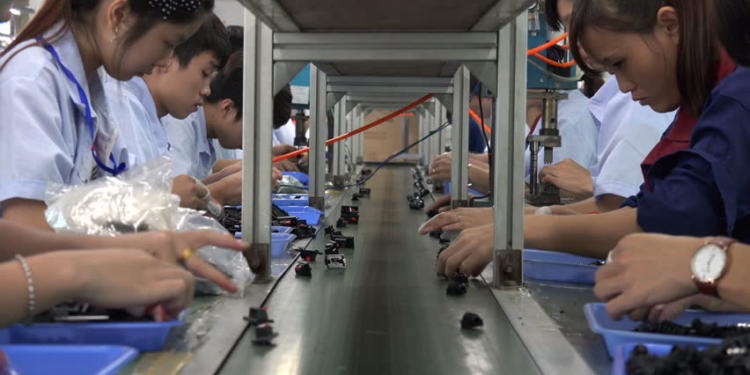In what comes as a bold move of the Modi government, India has imposed anti-dumping duty on 99 Chinese products to avoid the flood of cheap Chinese goods into the Indian market. “As on 28.01.2019, anti-dumping duty is in force on 99 products imported from China,” said Minister of State for Commerce and Industry, C R Chaudhary in a written reply in the Lok Sabha. The Chinese products on which duties have been imposed include chemicals and petrochemicals, fibres and yarn, machinery items, pharmaceutical, rubber, and steel items. If the domestic market of a country is hurt due to the surge in cheap imports, it reserves all the right to impose anti-dumping duties under the multilateral regime of the World Trade Organization.
The government is making all possible efforts to bridge the huge trade deficit tilted towards China. Negotiations have been carried out with the Chinese officials to lower down the trade barriers for Indian exports to take place. If the Chinese government agrees to lower down the trade barrier, India would be able to export its agricultural and animal husbandry products to China.
China is the largest trading partner of India with a huge trade deficit tilted in its favour. The total trade between India with China stood at $84.4 billion in the fiscal year 2017-18. The total imports from China accounted for $68.06 billion while the exports stood at just $16.34 billion. These numbers translate into a trade deficit of $51.72 billion which is almost equal to India’s defense budget. The deficit that India faces is still small in comparison to what countries like the United States are subjected to when it comes to trade with China. The US-China trade deficit amounts for $276.8 billion and thus the Donald Trump administration has come down heavily against China to lower down the deficit. Moreover, China is being pressurized world-wide to reduce trade deficit through liberalization in the tariff that it imposes on exports.
India has also been pitching for a reduced trade-deficit and lowered import tariffs with China so that Indian products can also be exported. In its statement during China’s trade policy review at the WTO, New Delhi pointed out that Beijing needs to make serious efforts to lower trade barriers for rice, meat, pharmaceuticals, and IT products from India to make a difference to the trade imbalance. According to a government official, “By bringing up the issue of trade deficit at the trade policy review, India wants to give a message to the Chinese that it wants promises to be turned into action.”
China plans to expand its public healthcare scheme while Indian companies have a very strong presence in the pharmaceutical sector across the globe. If China allows the import of generic medicines from Indian companies, it will give a big boost to Indian exports. In a statement at WTO, India said “Indian generic producers were unable to access the Chinese market due to regulatory hurdles. An important step to expedite this process would be for China’s Food and Drug Administration to hold workshops for Indian pharma companies to enable them to build capacity to file requests for market approvals.”
Since India has a world-class IT sector, there is a scope for collaboration between Chinese state-owned enterprises (SOEs) and the Indian IT sector. The coming together of both China and India in the IT-Sector can provide state-of-the-art, custom-designed solutions to the sector. India has also expressed its disappointment over hindrances that farm exports, including bovine meat, face in the form of stringent and opaque regulatory requirements. The Chinese must understand that the era of free trade is almost over and the huge trade deficits are no longer sustainable. If it continues to manipulate its currency to make its exports competitive and keep import tariffs high in its own country, it will soon be facing issues, it might not be prepared for. The decision to impose anti-dumping duty is in compliance with Modi government’s stance of bolstering India’s economic stability vis-a-vis China.

























